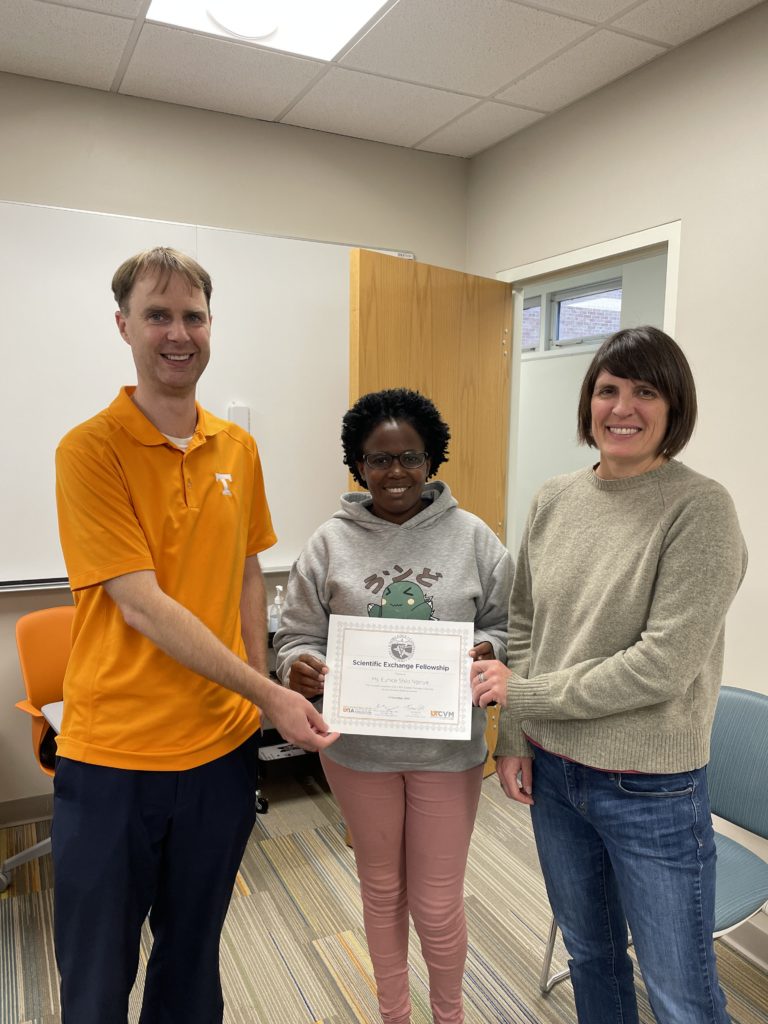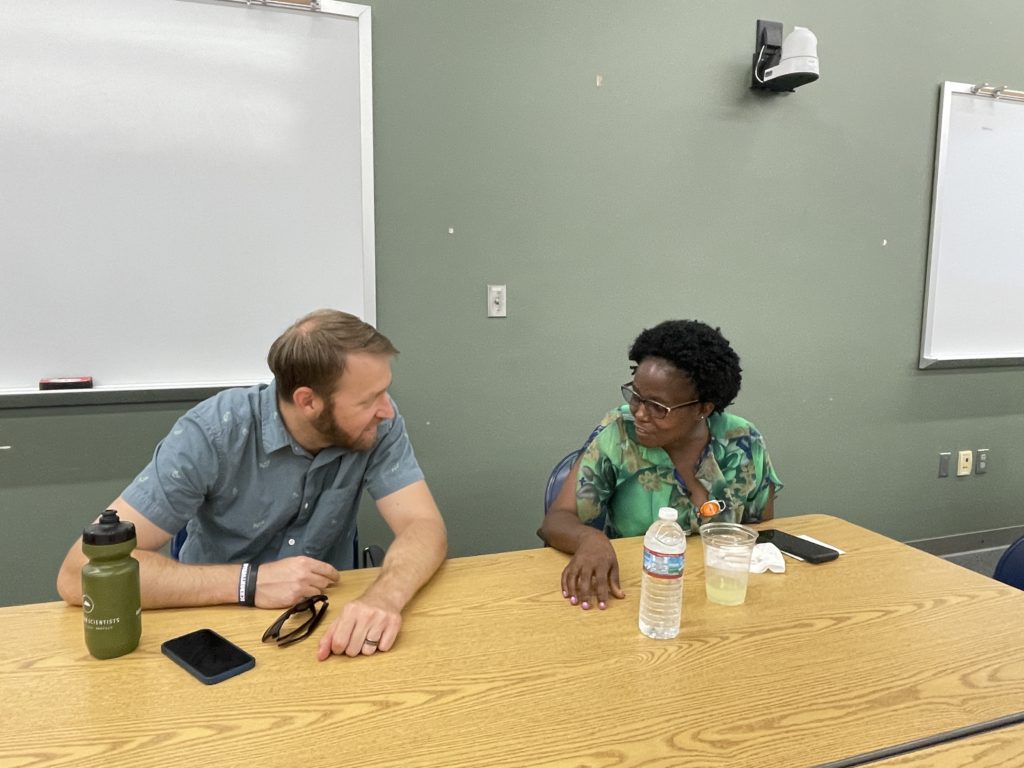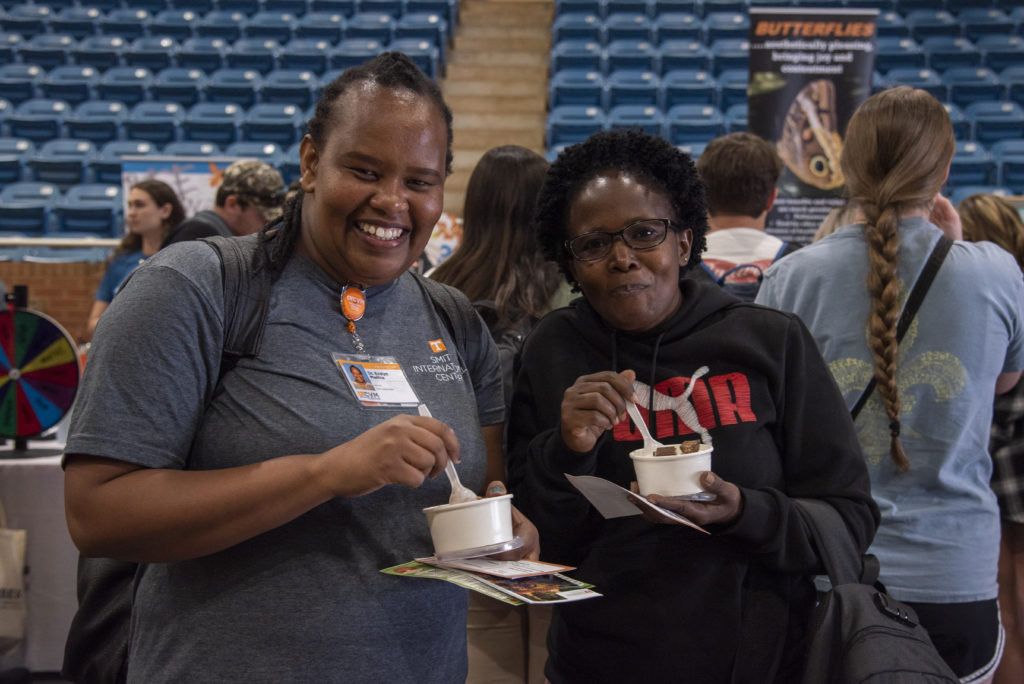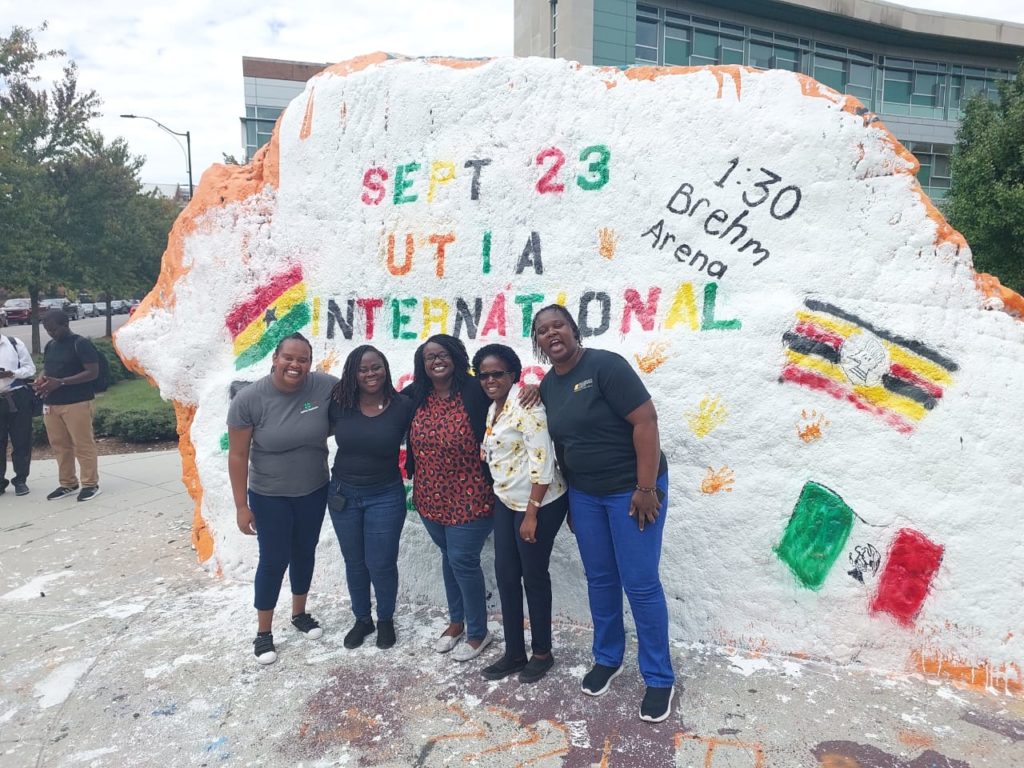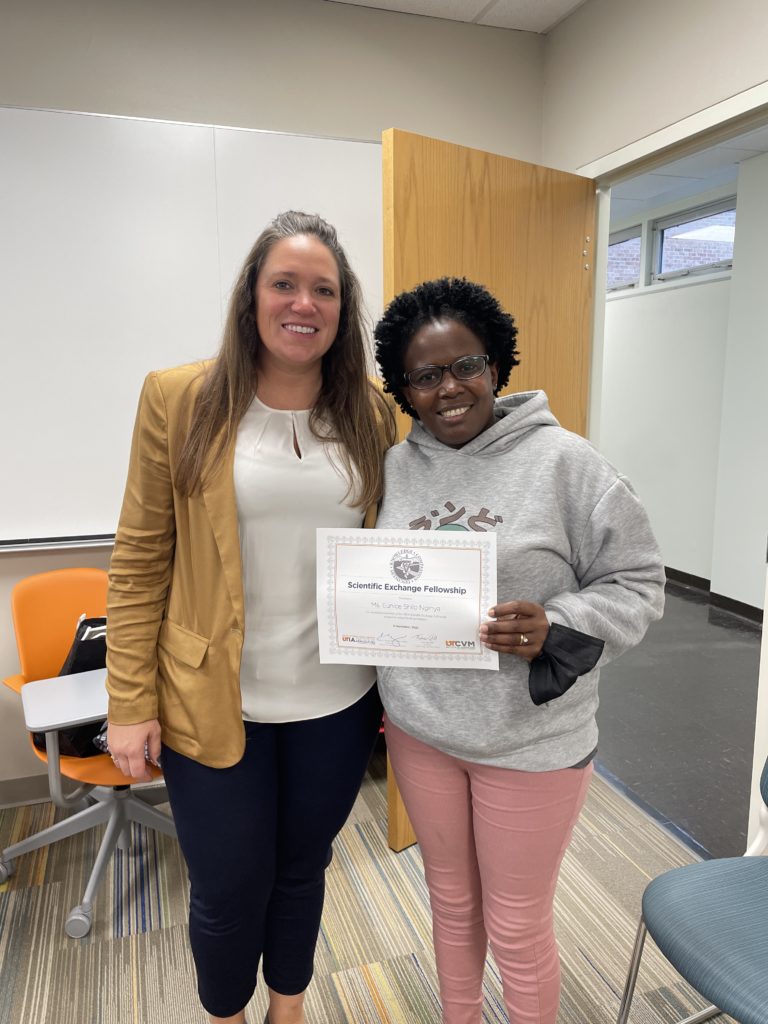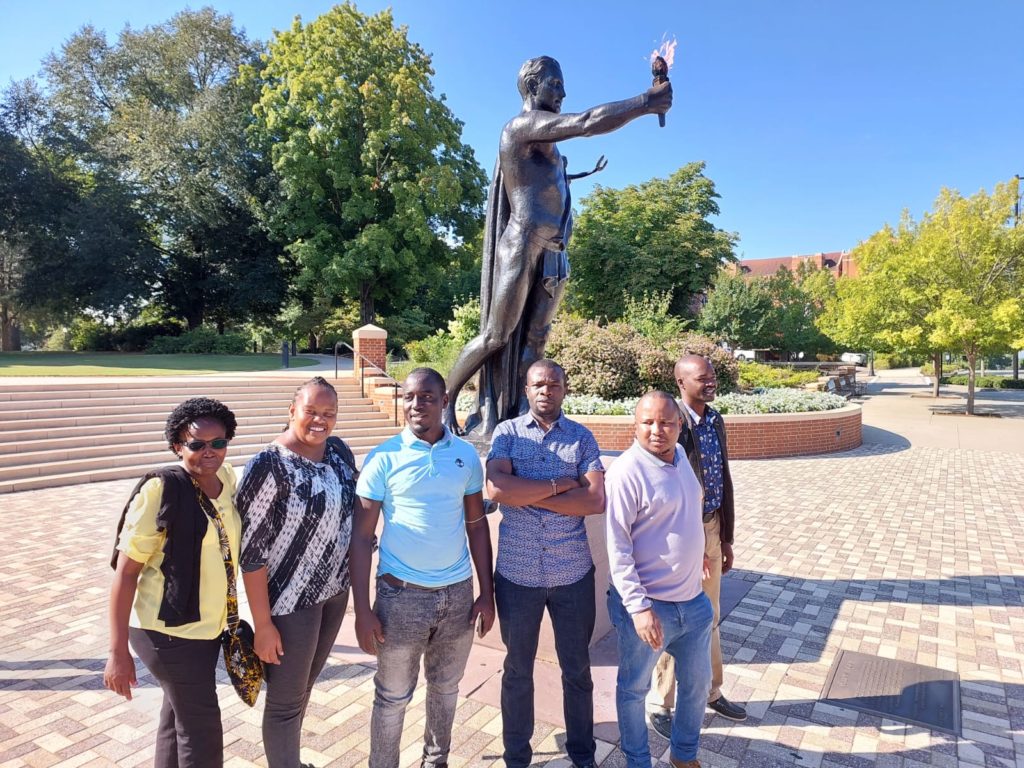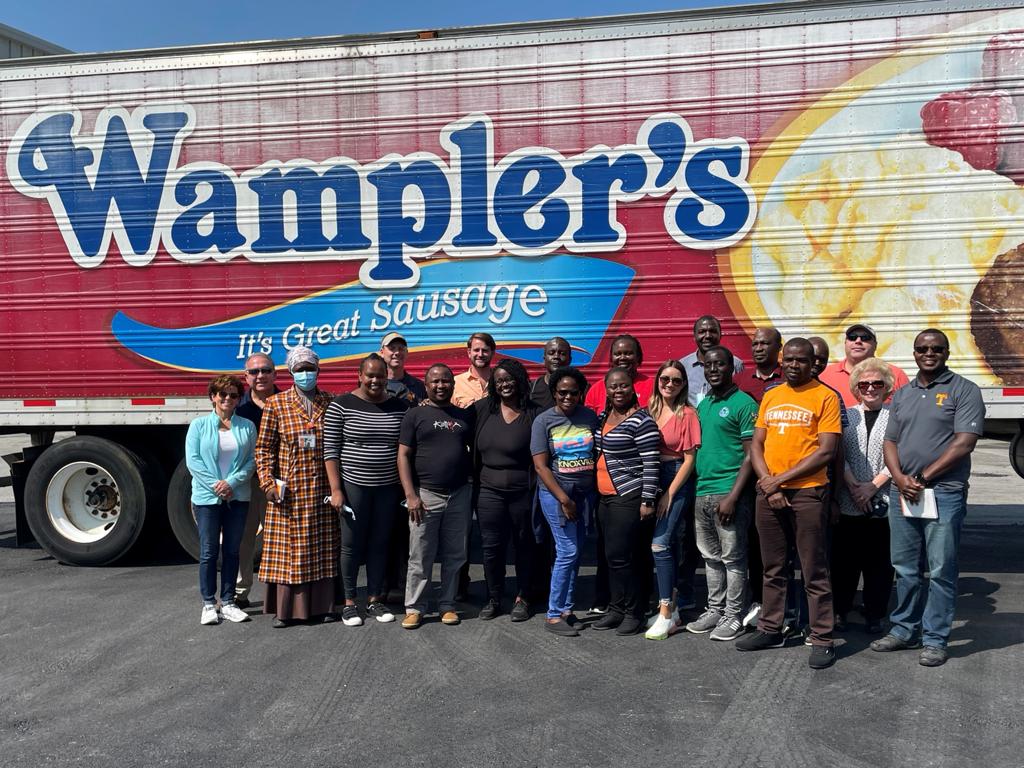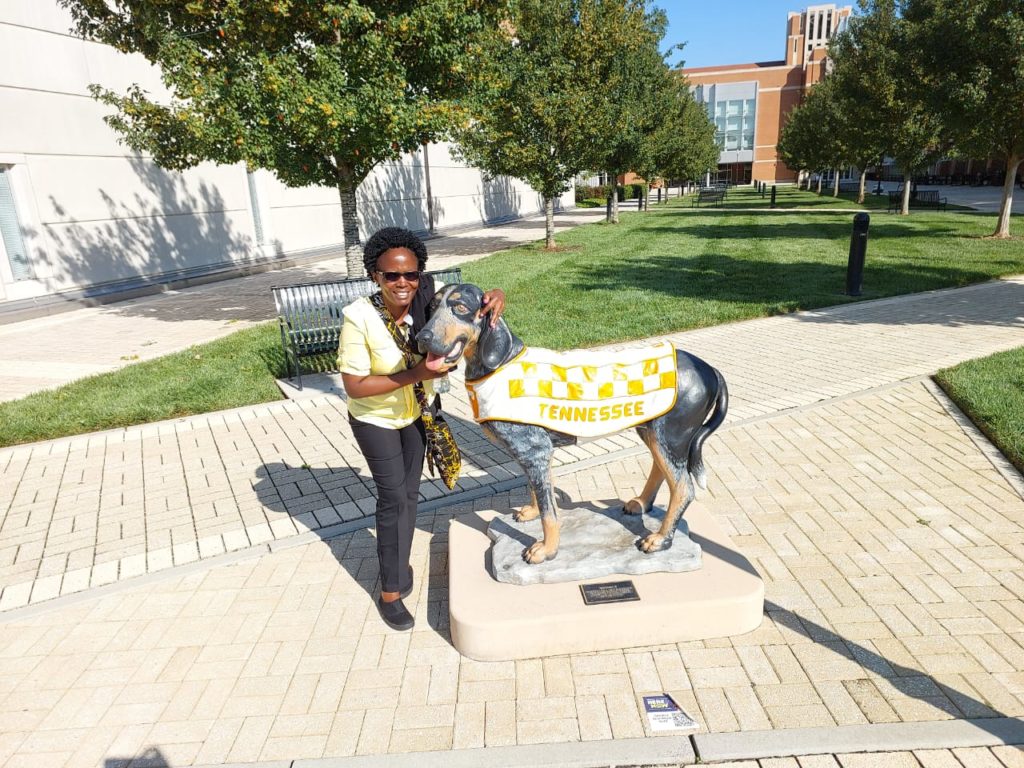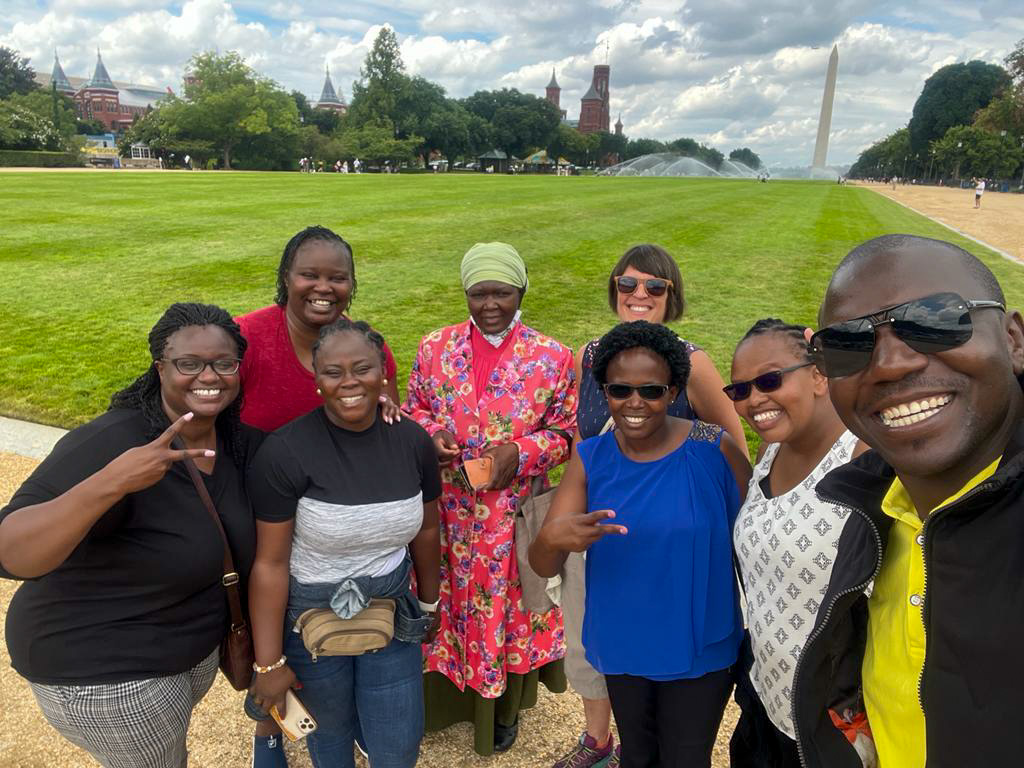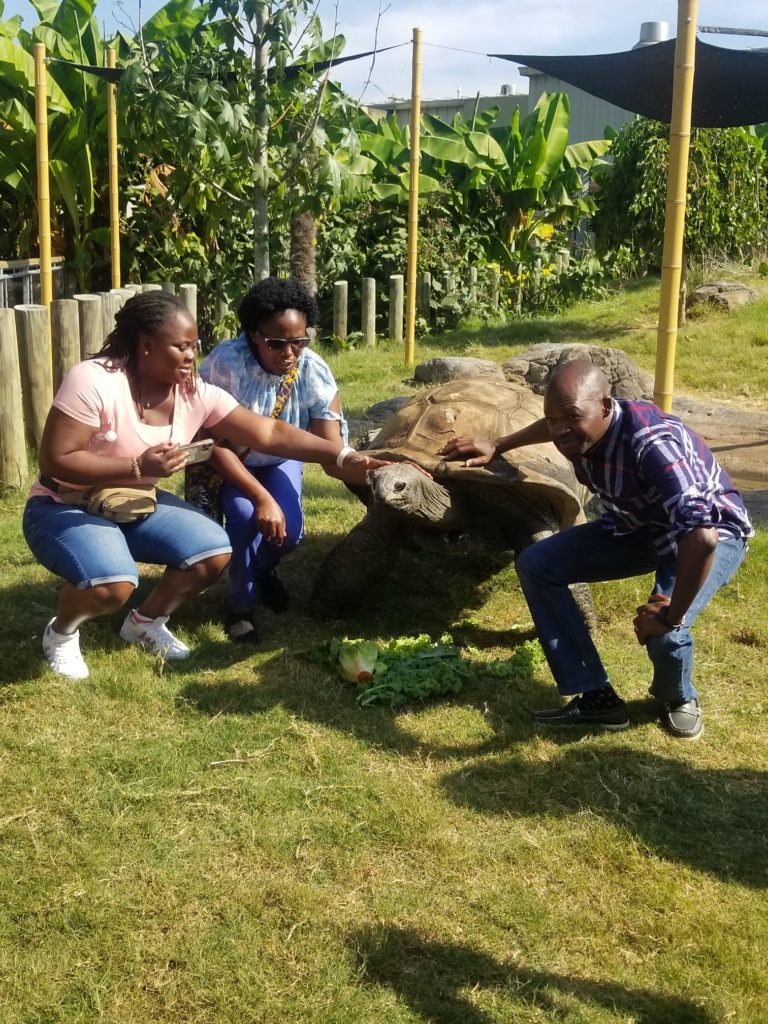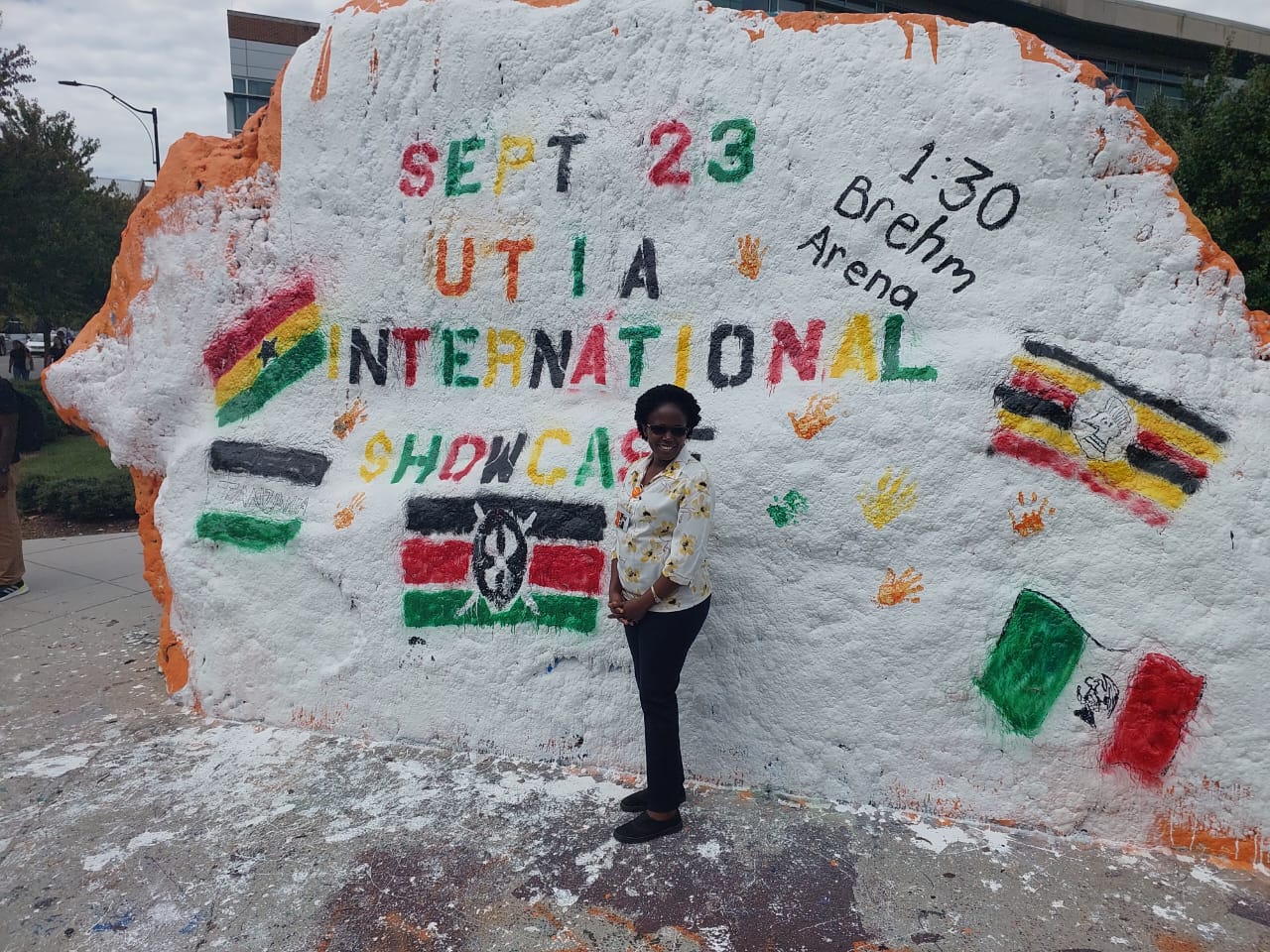
By Nadia Tippett
From August to December 2022, the University of Tennessee Institute of Agriculture hosted nine Faculty Exchange Program (FEP) and five Scientific Exchange Program (SEP) fellows from four African countries. These programs are funded through the Foreign Agriculture Service (FAS) at the United States Department of Agriculture (USDA), and they focus on veterinary teacher pedagogy and animal health governance. Marcy Souza, professor and associate dean for outreach and global engagement at UTIA CVM, served as the project lead for both programs. The visiting SEP fellows were all from Kenya, and the FEP fellows were from Ghana, Kenya, Tanzania, and Uganda. They were matched with faculty members from three different UT colleges for mentorship for the duration of their programs. Learn more about each fellow and their mentor throughout this #FacultyExchangeFriday blog series.
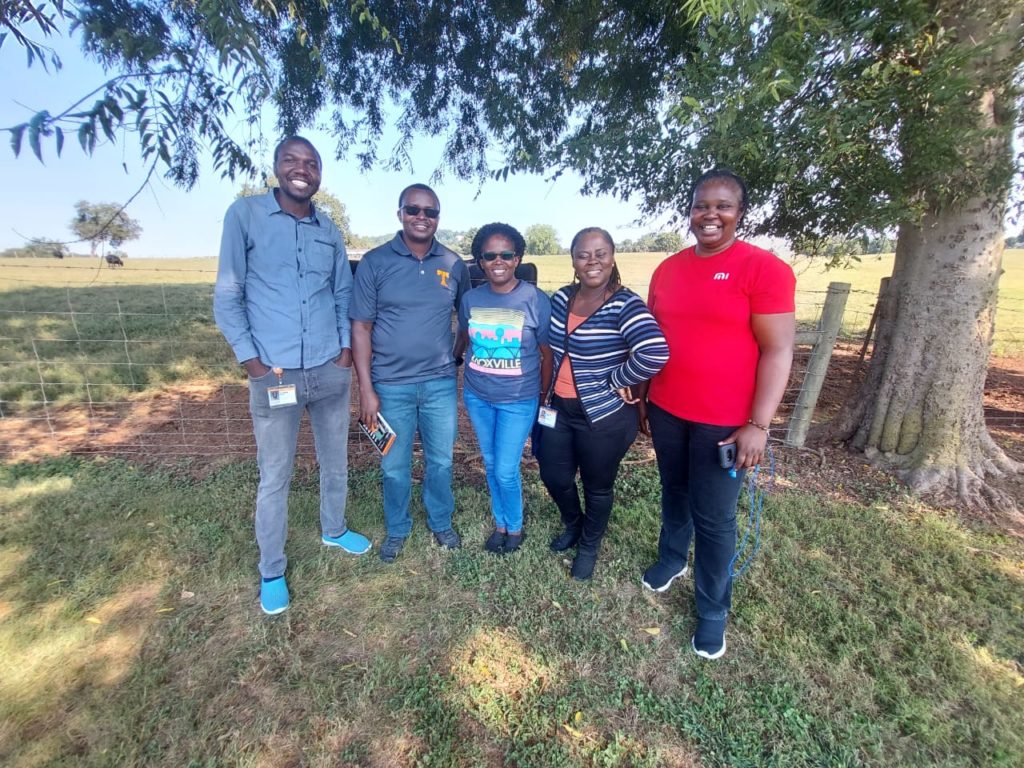
Eunice Shilo Nginya is a principal livestock production officer for the Nakuru county government in Kenya. Learn more about her experience as a SEP Fellow below.
Q: What interested you about this program?
I initially read about the program online. The focus on animal health issues in Kenya caught my attention and one of my friends sent me the form to apply. I thought participating would be beneficial to the farmers I serve since I work with them on issues of health and production.
Q: What were some highlights of the program for you?
One highlight for me was seeing how Dr. Ivey interacted with her students during labs; it was a fun environment with lots of teamwork. I also liked the healthy balance between professionalism and friendship throughout this program. It was interesting seeing how everything worked here compared to Kenya. I am grateful for all the friends that I have made and the flexibility of my mentor. Dr. Ivey was always open to bringing along other fellows; one of my favorite days was when we assembled a horse spine with the entire group. While watching the family dynamic with Dr. Ivey and her children, I began to notice how intentional and passionate American parents are.
My time with Dr. Ivey has established a lifelong connection; I am so grateful for her and the effort she put into getting to know me. She also connected me to other faculty that can help me in the future. It was great getting to see how extension works because the UT extension system is very different from what I’m used to. I liked seeing how they capture the interest of youth through 4-H. I am very excited to host my mentor and show how things work in Africa.
Q: What are you next steps following your completion of this fellowship?
The program allowed me to develop a policy brief and identify some of the problems we face where I live. I chose to write a brief on licensed household incubators because as a county, we usually promote poultry production with farmer subsidies. We began providing farmers with incubators to reduce hatching time and improve the productivity and profitability of the enterprise. Unfortunately, underutilization causes a loss of profitability instead of an increase. Since these machines are hard to maintain and require electricity, some farmers choose to abandon them for more traditional practices. Now I am working to find alternatives to the incubators that would be more successful, like providing chicks or feed.
Q: Why do you view exchange programs like this one as being important?
These programs push us out of our normal environment and comfort zones, giving us time to dedicate ourselves to thinking that is really valuable. I’ve learned a lot. Technology here is very advanced, so I might not be able to implement all of it, but it’s a new motivation to go and do better for Kenya. I hope to implement so many lessons, and I am convinced beyond any doubt that I will follow up with what I’ve learned here. I hope to incorporate knowledge gained here into every training I do with farmers, like always including 10 minutes about food safety when teaching.
Q: What was your favorite part about being at UT and in Knoxville, TN?
I was afraid of culture shock since this was my first time in the United States, but people in Tennessee have been so welcoming and loving. Knoxville is truly a place that makes you feel at home. I also enjoyed the food; Dr. Ivey’s meatballs and Earl Grey tea among others were great. I loved all the trips, especially the Smokey Mountain trip and The Lost Sea. The scenery here in Tennessee is beautiful!
Eunice was mentored by Dr. Jennie Ivey, associate professor in the Department of Animal Science. Her work focuses on evaluating solutions for issues identified and informed by her Extension program. “As the Equine Extension Specialist for Tennessee, I work closely with County Agents, industry members, equine owners, veterinarians, and many others. These relationships aid me in determining areas where applied research can improve aspects of nutrition, performance, and welfare.”
Q: What interested you in participating in this program?
Dr. Souza reached out to me directly with this opportunity and mentioned applicants with possible interest in extension and the outreach learning component. It was great timing since I had already begun searching for ways to branch out internationally.
Q: What were some highlights of the program for you?
One highlight was learning about the similarities across sectors of production and the similar struggles we manage. Learning from the fellows’ solutions to problems and discussing how we can implement them here has been extremely beneficial. One unexpected result was the conversations that graduate students and faculty were having after speaking to the fellows. Hearing these alternative experiences gave them new perspectives to think and talk about. I hope to continue to foster these discussions as we continue the program. This program facilitated some changes in perspective that probably wouldn’t have happened otherwise. The relationships that this program creates are also amazing; I love the long-lasting connections that we have the opportunity to establish.
Q: What did you learn from interacting with your mentee?
This program provided a challenge that broadened my perspective every step of the way. When I was reading Eunice’s application, I noticed that unlike my concentration, she was not an equine focus. This difference intimidated me at first; I could have easily passed on the opportunity with the assumption that I had no knowledge to give. Thankfully I chose to move forward and push the boundaries of my comfort zone. This choice helped me dig into why the different sections of agriculture production are interrelated, and realize that there are so many similarities in the struggles that we face. Seeing how these similar issues manifest themselves in different ways broadened my perspective. I have learned a lot from Eunice and the other fellows just by hearing how they tackle their own struggles.
I am excited to see Eunice’s life and what she can develop. An important part of this program is to foster collaboration outside of the 3 months that the fellows are here, so flexibility is helpful. Having a little time between the return trip builds the connection and creates a more lasting impact.
Q: What kind of impacts do you think these exchange programs have?
Any time we get to learn about how someone else does something is beneficial for everyone. This program tackles common issues that you face in agriculture no matter where you’re from. The exchange aspect is great because there’s so much more you can accomplish in person than you can over Zoom. Learning how others approach issues we also face is one of the best things you can work towards. We can learn so much from how the fellows approach these programs; the connections they are creating, and opportunities for mentors to go to other countries make you feel more invested.
